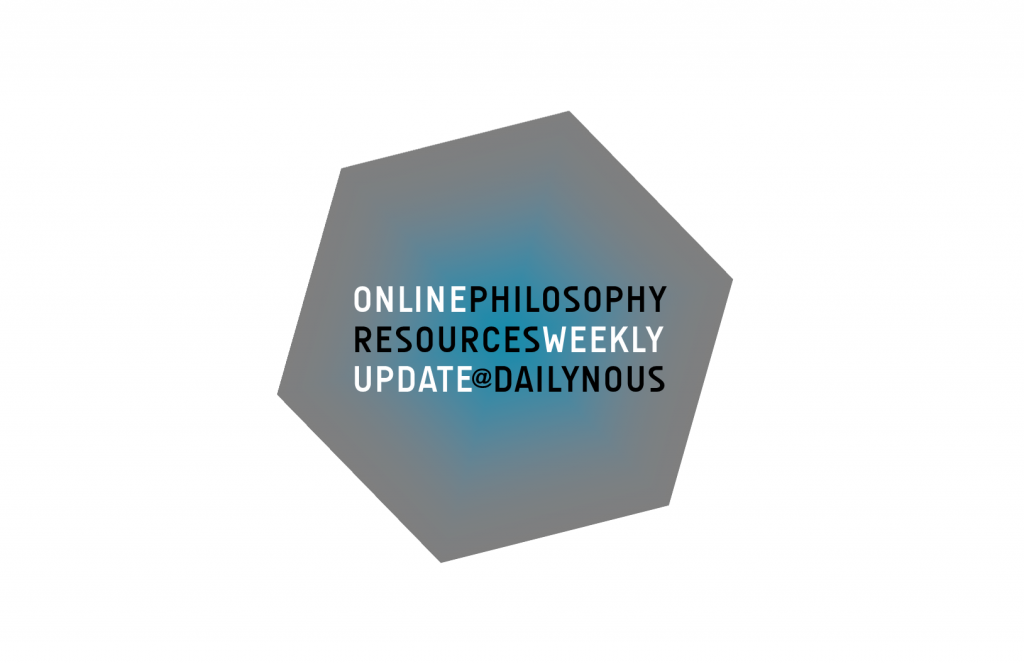Online Philosophy Resources Weekly Update
Here’s the weekly report of what’s new at some useful online philosophy resources.
We check the Stanford Encyclopedia of Philosophy (SEP), Internet Encyclopedia of Philosophy (IEP), Notre Dame Philosophical Reviews (NDPR), 1000-Word Philosophy, and occasionally some other sites for updates and report them right here.
If you think there are other regularly updated sites we should add to this feature, feel free to suggest them in the comments.
New:
- Śrīharṣa, by Nilanjan Das (NYU-Shanghai).
Revised:
- Lucrezia Marinella, by Marguerite Deslauriers (McGill).
- Proof-Theoretic Semantics, by Peter Schroeder-Heister (Tuebingen).
- Wittgenstein’s Philosophy of Mathematics, by Victor Rodych (Lethbridge).
- Leibniz’s Influence on Kant, by Catherine Wilson (York).
- Delusion, by Lisa Bortolotti (Birmingham).
- Propositions, by Matthew McGrath (Missouri) and Devin Frank (Illinois).
- Paulo Freire, by Kim Díaz (El Paso Community College).
- Maurice Blanchot, by Joseph Kuzma (Colorado-Colorado Springs).
- Ralf M. Bader (Merton College-Oxford) reviews Significance and System: Essays on Kant’s Ethics (Oxford), by Mark Timmons.
- Joseph Mai (Clemson) reviews Trust in the World: A Philosophy of Film (Routledge), by Josef Früchtl.
- Jonathan Anomaly (Arizona) reviews Pharmaceutical Freedom: Why Patients Have a Right to Self-Medicate (Oxford), by Jessica Flanigan.
- Jonathan Ichikawa (British Columbia) reviews Epistemic Contextualism: A Defense (Oxford), by Peter Baumann.
- Sandra Shapshay (Indiana-Bloomington) reviews Weltschmerz: Pessimism in German Philosophy, 1860-190 (Oxford), by Frederick C. Beiser.
- Robert C. Koons (Texas-Austin) reviews Unbelievable Errors: An Error Theory about All Normative Judgments (Oxford), by Bart Streumer.
- Richard Kraut (Northwestern) reviews Ethics in the Conflicts of Modernity: An Essay on Desire, Practical Reasoning and Narrative (Cambridge), by Alasdair MacIntyre.
- Plato’s Form of the Good, by Ryan Jenkins (Cal Tech-San Luis Obispo).
BONUS: Consistency.
Compiled by Michael Glawson (University of South Carolina)
Subscribe
Login
0 Comments


